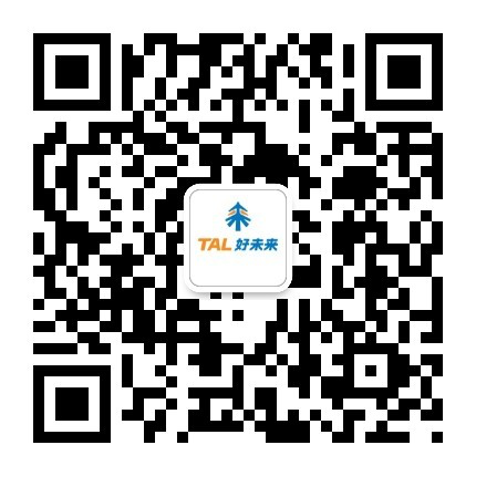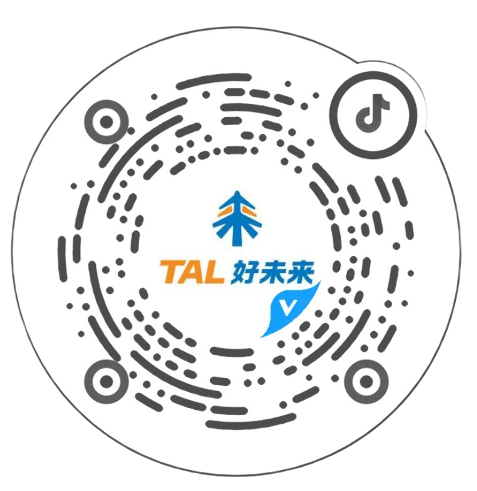




On the morning of November 28th, the first GES Future Education Conference was grandly held in Beijing. The conference was jointly sponsored by the China Development Research Foundation, Beijing Normal University, Tencent, GSV (Global Silicon Valley Investment Company), and TAL Education Group, and invited more than 300 heavyweight guests from the global education industry.

(GES2017 Future Education Conference)
The Director of the Development Research Center of the State Council, Li Wei, and the Vice Minister of Education, Du Zhanyuan, delivered opening remarks. Dong Qi, President of Beijing Normal University, and Bai Yunfeng, President of TAL Education Group, delivered keynote speeches at the conference.
As the representative of the leading education enterprise in China, Bai Yunfeng, President of TAL Education Group, delivered a keynote speech titled "Connecting the World, Connecting the Future" at the conference.
In his speech, Bai reviewed the development of TAL Education Group and shared his thoughts on the abilities needed for children's growth and development based on his own experience.
At the same time, he also believed that the reasonable application of advanced technologies such as the Internet, big data, and AI (artificial intelligence) can not only help achieve inclusive education and promote balanced educational development, but also help drive the transformation of Chinese education, enabling Chinese education to go global and connect to the future.

(Bai Yunfeng, President of TAL Education Group, delivers a wonderful speech at the GES Future Education Conference)
Below is the transcript of the wonderful speech by Bai Yunfeng, President of TAL Education Group:
I am very honored that TAL Education Group was invited to participate in this globally recognized Future Education Conference. We are a young team, and since our establishment, we have been pondering and practicing the thinking of China's basic education and have discovered the advantages of Chinese basic education while exploring more possibilities for its development.
This time, we are participating in the exploration of future education with a learning mindset. If our thoughts on education today will impact the future of Chinese education in 30 years; if the depth and breadth of our thinking will affect the future of Chinese primary and secondary school students, then we believe all of this is sacred and meaningful.
AI Technology Realizes Another Path for Education
Let me first introduce TAL Education Group to guests from home and abroad. The predecessor of TAL Education Group was "Xueersi". Xueersi was born in 2003, a year when our country was experiencing a test–the SARS epidemic.
During that time, middle and primary school students were unable to go to school and could only study at home. Therefore, a group of middle and primary school students in Beijing pondered a question - is there any way for us to study at home just like in school? They thought of using the Internet to begin a process of self-learning by logging in online.
At the same time, there was a group of college students at Peking University and Tsinghua University that were also unable to go out. They built a website online, a forum for basic education. During their spare time, they answered questions for these middle and primary school students who were studying at home.
As a result, after the SARS epidemic passed, these students became the first group of students who shifted from Xueersi’s online courses to offline in 2003.
I was thinking, the reason why human society is great is because it has never stopped thinking in the face of difficulties and obstacles. It has never stopped trying new methods and production tools to solve new problems.
Seven years later, those students who had thought of studying at home eventually gained admission to Peking University, Beijing Normal University, University of Hong Kong, and some of them went abroad to further their studies. The thoughts of 14 years ago determined their future learning.
For TAL Education Group, our predecessor was Xueersi, and we have always persisted in learning and thinking. In fact, 2003 was also the embryonic stage and early stage of online education; it was during that time that TAL Education Group planted the seeds of Internet teaching.
Similarly, seven years later, in 2010, TAL Education Group officially established Xueersi Online School; another seven years later, in 2017, students from Xueersi Online School are already found in more than 30 regions.
From 2003 to 2017, I have detailed the story of Xueersi's birth, which is also the story of TAL Education Group's growth. Over 14 years, accompanied by the development and growth of Chinese basic education and the needs of customers and parents, Xueersi has grown from a small seed into the large tree it is today.
As you can see, throughout the development process from Xueersi to TAL Education Group, we have been exploring the potential for technological reform in education.
Today's TAL Education Group has expanded from the K12 field to the 0-24 age group, from academic learning to digital learning, and from being a provider of teaching content to being a provider of educational systems and solutions. We have also expanded from education itself to public welfare education, and have now become a comprehensive educational technology group.
Over the past 10 years, our reflections on science and technology have created TAL Education Group – an educational enterprise with Internet genes. This is why we firmly believe that our reflections on new technologies such as artificial intelligence today will mold an educational and technology enterprise like TAL Education Group that will contribute more to the development of Chinese education in the next 10 to 30 years.

(TAL Education Group booth at the GES2017 Conference)

(Bai Yunfeng, President of TAL Education Group, delivers a keynote speech "Connecting the World, Connecting the Future" at the Future Education Conference)
From Educational Consistency to Educational Diversity: Students Should Possess the "Three Powers"
TAL Education Group has now developed to have over 30,000 employees, and a large proportion of these employees also have another identity–that of a father or mother. I am no exception; besides being an education worker, I am also an ordinary father.
Therefore, I and our employees have been pondering how we should cultivate our children so that they can have a healthy personality and a better life. What kind of abilities should we cultivate in children to better prepare them to embrace the future world's changes and challenges?
With these thoughts in mind, our employees and I, as well as other excellent partners outside the industry, have been constantly engaging in exchange and exploration.
Over a year ago, I had an interesting conversation with my son.
At the time, the school teacher gave a topic called "What kind of person do you want to be in the future?" I asked him, how are you going to answer this question? He said, "Dad, I want to be a baseball player." I was surprised to hear this, as everyone knows that baseball is not as popular or widespread as table tennis in China; it is a very niche sport.
So I asked him, do you have any other choices and hobbies? He replied, apart from baseball, I want to be an archaeologist.
I believe that the feelings of millions of parents in China at that time should have been the same as mine, because we habitually worry about whether our children, in the fiercely competitive social environment of China, can get societal recognition and have access to better resources and development opportunities?
Archaeology is sacred and very valuable, but in China, it is still a relatively niche profession. Therefore, more parents would rather let their children learn math, computer science, finance, and other more promising careers, hoping that this would lead to better career prospects in the future.
So, I was not willing to give up. I asked him a third question–apart from archaeology and baseball, do you have any other hobbies? He looked at me and did not speak.
At this point, I asked him another question, I said, what about becoming a teacher? His response was, why would I want to be like you.
From this incident, I gained a reflection that, as ordinary parents in China, we are concerned about our children's future. We worry that our children might lose job opportunities in the fiercely competitive society of China and may face harm in their future jobs. These worries are normal.
But sometimes, we may forget what kind of person our children want to be.
Half a year later, I came across a TED talk titled: When I grow up, I want to be a healthy and happy person. This talk gave me a great shock.
After watching this talk, when thinking again about my children's development and the development of Chinese education, I asked myself why I haven’t talked to my children about why he wants to become a baseball player and what he has learned from playing baseball.
Later, during a conversation with his mother, I discovered that his love for baseball was due to encouragement and guidance from his coach. It suddenly dawned on me that a coach has an extremely significant influence on a child's mental growth. The title of "Teacher" is so sacred in a child's mind that, even in my role as a father, I do not have as much of an influence as a teacher.
The second issue I want to explore is when I see my son, under the encouragement of his coach, engaging in baseball without complaining or showing tiredness, facing failure with a spirit of teamwork. I think, that in sports, children gradually experience many precious qualities such as teamwork, giving their all to a cause, and courage in the face of failure.
Therefore, when we think again about the growth of today's Chinese students in the future and the mode of teaching, should we, besides paying attention to the consistency of basic education, also focus on the diversity of future education? This is worth our serious consideration.
After our exploration and communication with education experts and scholars, we found that in the process of the development of Chinese basic education, there are "Three Powers" that are highly valuable to students in their growth. These are what I refer to as "Learning Power," "Thinking Power," and "Knowledge Power."
Currently, Chinese basic education is in a leading position globally in terms of "Knowledge Power." The U.K. and the U.S. have even called for learning from China's basic education.
For example, in the PISA composite skill tests in 2009 and 2010, Chinese children came in first place. In the PISA tests at the end of 2015, Chinese children ranked at the top in the areas of mathematics, science, and reading.
There is another example - an American professor once conducted a large-scale test, questioning elementary school students from dozens of countries. The question was “1/3-1/4=?". Only 27% of American students answered this question correctly, while Japan had 65%, South Korea had 87%, and China had 93.6%. This demonstrates the significant achievements made by Chinese basic education in the 30 years since the reform and opening up.
However, we can still identify problems in the Chinese primary education system. In the entire PISA test in 2005, Chinese children ranked 6th globally in mathematics, 10th in science, and only 27th in reading.
This reflects that Chinese children may lack important competencies and skills such as learning power, thinking power, etc., in addition to knowledge power.
In the next 30 years, artificial intelligence will have a significant impact and change on the education industry. It will affect the question of knowledge power.
In many areas related to recitation, calculation, and exam-related fields, the human brain probably cannot match computers. In today's Chinese language classes, many students say, “Teacher, you should understand the meaning behind this poem because students can look it up in Baidu Wenku. They believe that Baidu Wenku is a smarter teacher." In the process of calculations, the human brain often cannot surpass computers, and it is difficult for it to surpass the "Gao-kao" robot even during the college entrance examination process. Last year, the robot scored 134 points in the Gao-kao, while an alliance of excellent students scored 135 points, only 1 point higher. Let alone the recent AlphaGo.
Therefore, we need to think about what abilities should be built for students in the next 10-30 years to face the future development and challenges of society.
I believe that knowledge power appears to be very likely to be replaced by artificial intelligence and technology, while learning power and thinking power might be the core values of future learning.
Learning power refers to the ability to read, communicate, and inquire,
Thinking power refers to abstract thinking, creative thinking, and persuasive thinking,
These abilities and thinking are likely to guide the direction of the model for cultivating students in China's basic education in the future.
In our research, we have found that thinking power and learning power will construct the main aspect of future learning. TAL Education Group has also proposed "Lifelong Beneficial Abilities" as the direction for students' progress in the next 10-30 years.
So, what changes will artificial intelligence and technology bring to education? In the future of education, what roles can people still play?
In the analysis and research based on 365 industries conducted by the University of Oxford, we found that education is the industry that is least likely to be replaced by artificial intelligence.
In our exploration process at TAL Education Group, we found:
In the classroom environment, personalized learning can be achieved through Intelligent Teaching Systems (ITS) and Intelligent Practice Systems (IPS).
TAL Education Group's Magic Mirror System (facial recognition technology) can focus on the immediate reaction of each student in the classroom and the perspectives on knowledge acquisition.
The voice recognition system in the industry has also replaced the traditional method of listening.
In the era of artificial intelligence, teachers will focus more on the cultivation of the abilities of children, rather than imparting knowledge. I also believe that in the era of artificial intelligence, classrooms will be able to more accurately understand students, thus achieving "teaching students according to their aptitude" as Confucius mentioned 5000 years ago.
Globalization Era – "Education + Technology" Connecting the Future of the World
Today, China's industry is gradually developing globally, and this will undoubtedly bring about the globalization of talent, which will inevitably lead to the globalization of education. This year, President Xi Jinping mentioned the construction of a community of shared future for humanity and the promotion of peaceful development path in the report of the 19th National Congress of the Communist Party of China. This globalization of "Chinese wisdom" will guide the international community to achieve a new realm of open development and mutual benefit.
In TAL Education Group's entire process of practice, we adhere to the method of going out and bringing in, hoping to help students create a better future. This is also the original intention of our cooperation and connection with the MIT Media Lab for scientific programming, as well as our cooperation with outstanding enterprises and institutions such as the University of Oxford, and the University of Cambridge, to realize high-quality educational resources.
TAL Education Group hopes to provide better teaching products for China's primary and secondary school students. We know that human development has experienced three important revolutions. The agricultural revolution gave birth to agricultural civilization, the industrial revolution brought about industrial civilization, and the energy revolution gave birth to the information civilization. In the process of each leap in societal productivity, there was a transformation in education modes.
In the agricultural civilization period of 5,000 years ago, the education relationship was a one-on-one apprentice system; the industrial civilization period realized standardized teaching to solve the problems of human learning and growth; and today, we have entered the information civilization period. Under this context, what kind of education approach should we take to guide the future of Chinese education and global education?
Over the last 20 years, we have proven the strength and capability of "Made in China" to the world. Today, we hope to achieve "Create in China", and we believe today's thinking of learning methods will determine the path of Chinese education in the next 30 years. We hope that based on "Made in China," we can also realize "Education in China." What direction will our education take in the future leaves us with two thoughts:
One. Education reform must set the pace for industrial reform.
Education is an industry that builds the tree of life over ten years and the future of individuals over 100 years. The seeds we sow today will not grow and mature today but will reap the future of Chinese education in 20 or 30 years.
Two. Technological progress is an effective way to solve the issue of inclusive education.
I have never seen that the development and change in productivity brings regression for humanity. In fact, some people might say, it will cause unemployment, such as during the industrial civilization period, when dock workers lost their jobs. But no one would say that the emergence of e-commerce has affected traditional businesses.
But the essence of technological progress is to reduce production costs, increase production efficiencies, and use better methods to popularize the breadth and depth of Chinese education. Therefore, I believe that the progress of education is the best way to truly solve the uneven